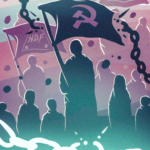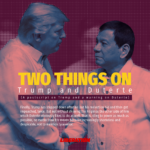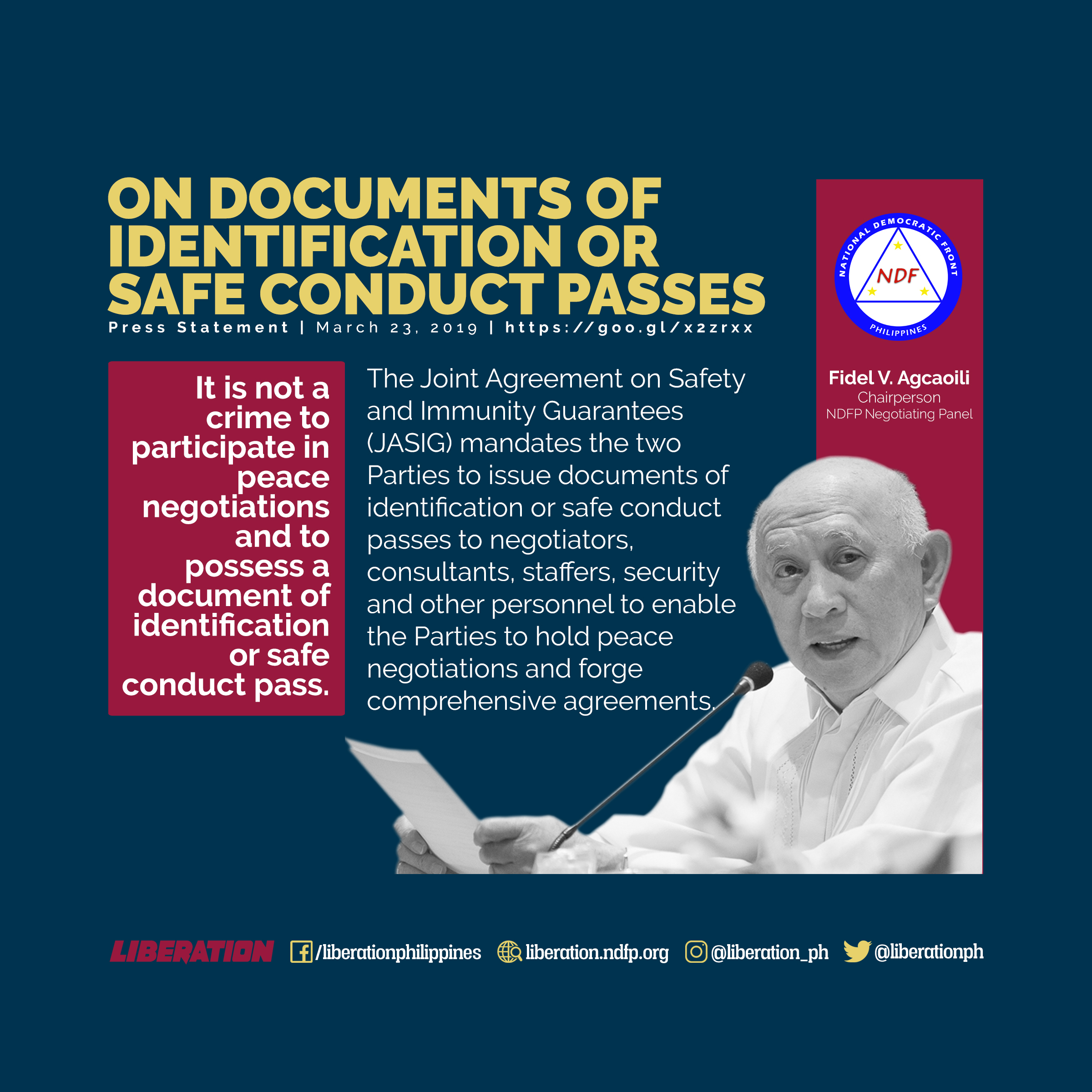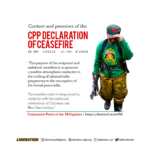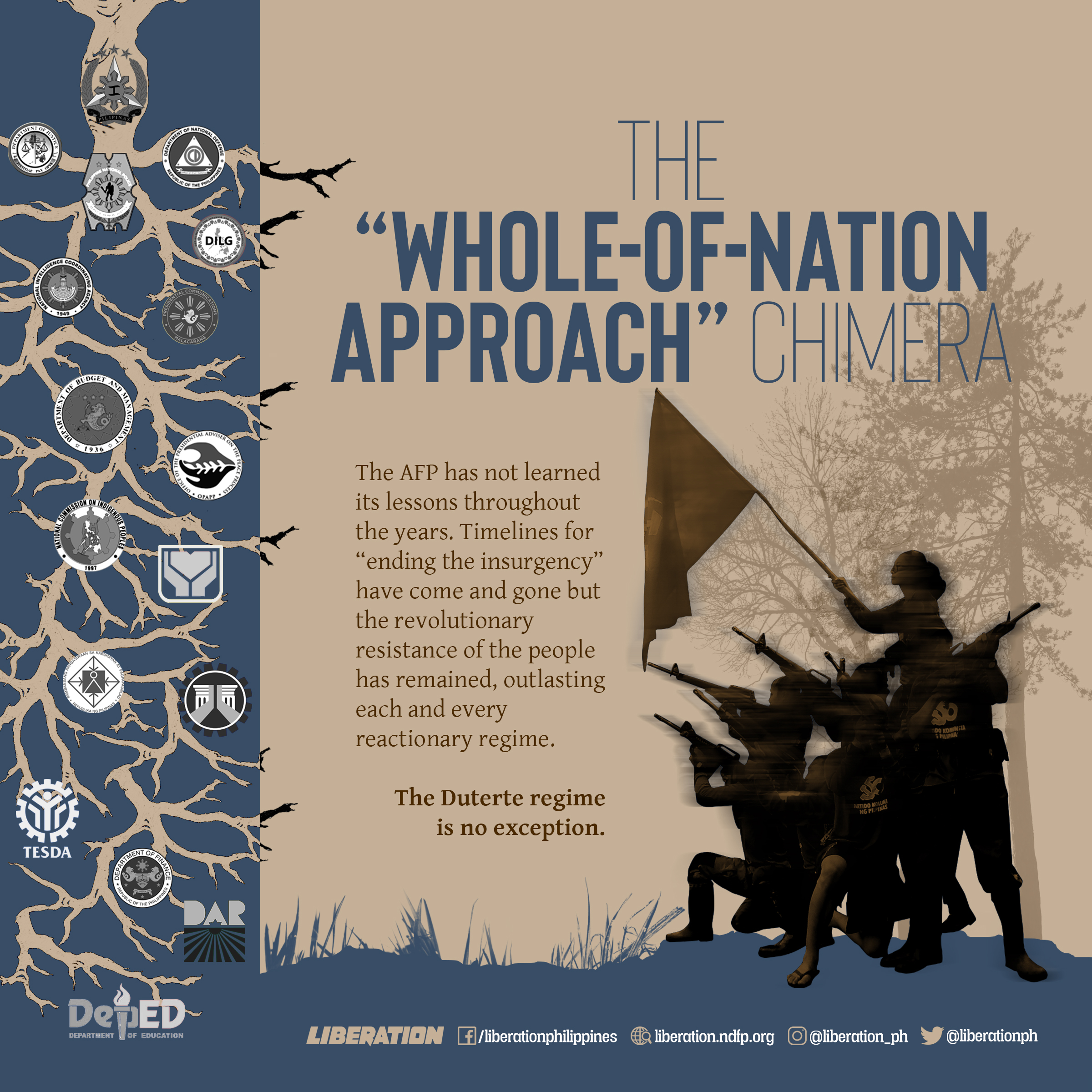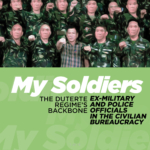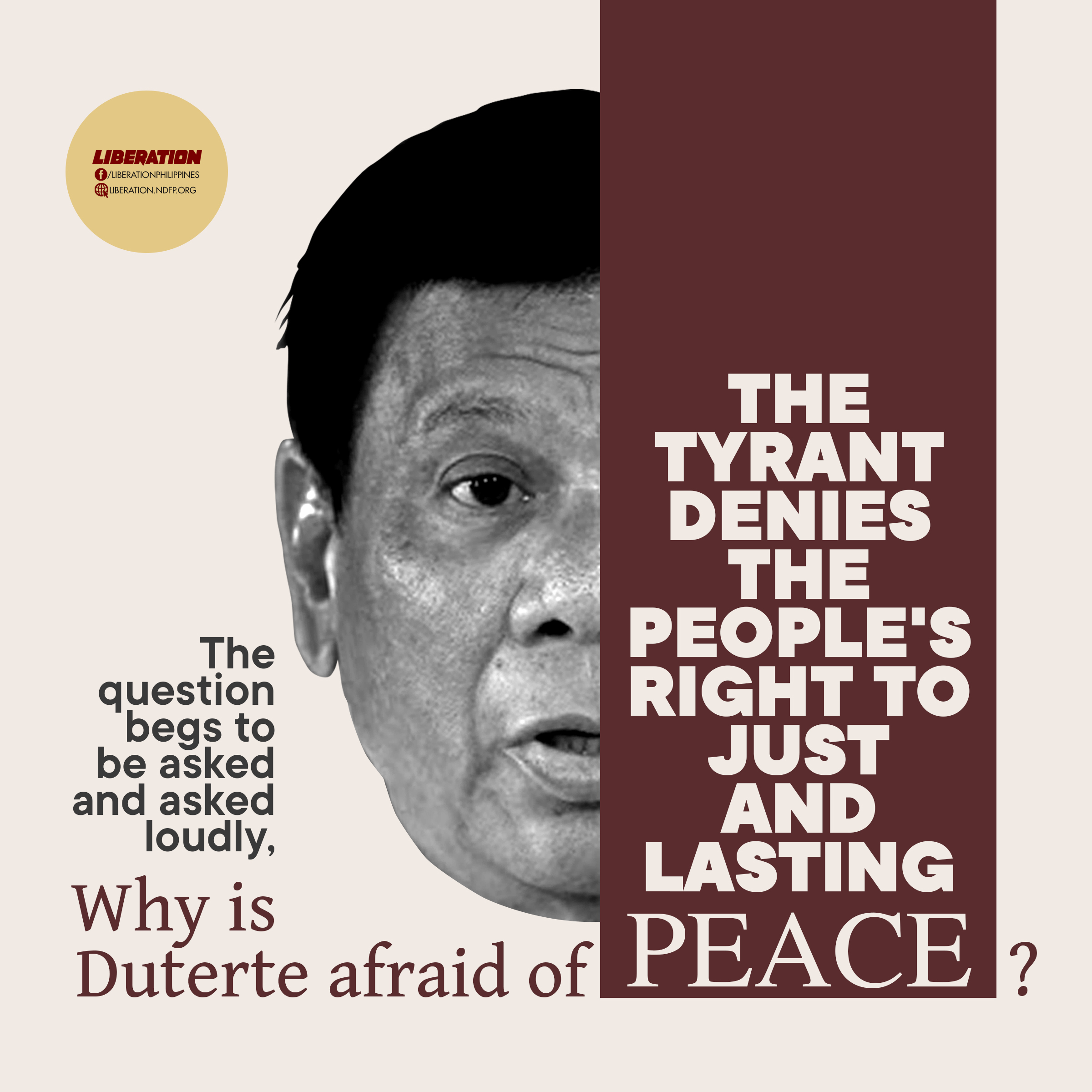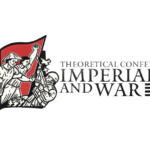On the Resumption of the GRP-NDFP Peace Negotiations
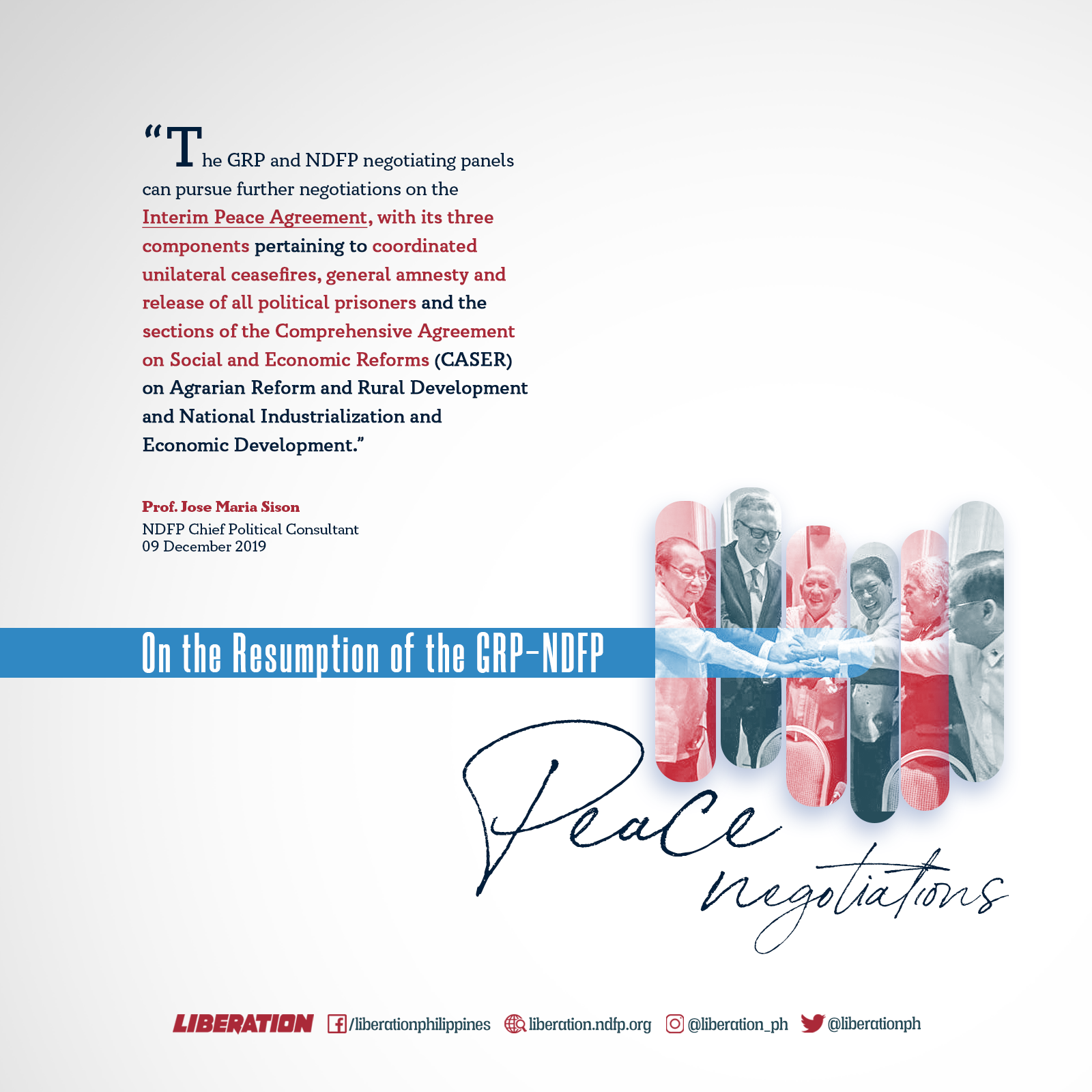
By Jose Maria Sison, NDFP Chief Political Consultant
December 9, 2019
I welcome President Duterte’s publicly expressed desire to resume the GRP-NDFP peace negotiations and his instruction to Secretary Bello to visit me and consult with me in Utrecht in this regard.
I am pleased that President Duterte has also acknowledged that he is “running out of time” and that he is determined to achieve peace before the end of his term.
It is timely for the GRP and NDFP to celebrate with the Filipino people the season of Christmas and the New Year and to create the favorable atmosphere for peace negotiations by undertaking such goodwill measures as reciprocal unvilateral ceasefires and the release of political prisoners who are elderly and sickly on humanitarian grounds, especially those who shall participate in the peace negotiations.
In my view, the peace negotiations can be resumed in a formal meeting to issue the declaration to reaffirm the agreements that have been forged since 1992, to overcome the presidential issuances and other obstacles that have prevented peace negotiations since 2017 and to set the agenda and schedule for these negotiations and to fullfill political, legal and security requirements.
The GRP and NDFP negotiating panels can pursue further negotiations on the Interim Peace Agreement, with its three components pertaining to coordinated unilateral ceasefires, general amnesty and release of all political prisoners and the sections of the Comprehensive Agreement on Social and Economic Reforms (CASER) on Agrarian Reform and Rural Development and National Industrialization and Economic Development.
All the remaining sections of the CASER can be negotiated, completed and mutually approved by the GRP and NDFP in a relatively short period of time. Thereafter, the Comprehensive Agreements on Political and Constitutional Reforms and the End of Hostilities and Disposition of Forces shall be negotiated, completed and mutually approved. ###
#JustPeace
#SignCASER
—–
VISIT and FOLLOW
Website: https://liberation.ndfp.info
Facebook: https://fb.com/liberationphilippines
Twitter: https://twitter.com/liberationph
Instagram: https://instagram.com/liberation_ph


